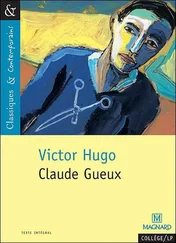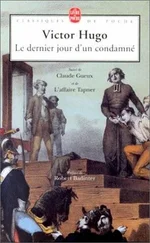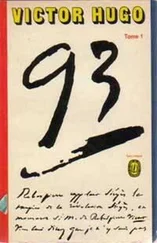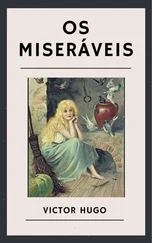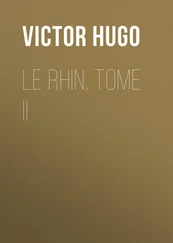Victor Hugo - Ninety-Three
Здесь есть возможность читать онлайн «Victor Hugo - Ninety-Three» — ознакомительный отрывок электронной книги совершенно бесплатно, а после прочтения отрывка купить полную версию. В некоторых случаях можно слушать аудио, скачать через торрент в формате fb2 и присутствует краткое содержание. Жанр: literature_19, foreign_antique, foreign_prose, на английском языке. Описание произведения, (предисловие) а так же отзывы посетителей доступны на портале библиотеки ЛибКат.
- Название:Ninety-Three
- Автор:
- Жанр:
- Год:неизвестен
- ISBN:нет данных
- Рейтинг книги:3 / 5. Голосов: 1
-
Избранное:Добавить в избранное
- Отзывы:
-
Ваша оценка:
- 60
- 1
- 2
- 3
- 4
- 5
Ninety-Three: краткое содержание, описание и аннотация
Предлагаем к чтению аннотацию, описание, краткое содержание или предисловие (зависит от того, что написал сам автор книги «Ninety-Three»). Если вы не нашли необходимую информацию о книге — напишите в комментариях, мы постараемся отыскать её.
Ninety-Three — читать онлайн ознакомительный отрывок
Ниже представлен текст книги, разбитый по страницам. Система сохранения места последней прочитанной страницы, позволяет с удобством читать онлайн бесплатно книгу «Ninety-Three», без необходимости каждый раз заново искать на чём Вы остановились. Поставьте закладку, и сможете в любой момент перейти на страницу, на которой закончили чтение.
Интервал:
Закладка:
With all this was intermingled, especially among the conquered party, an indescribably haughty weariness of living. A man wrote to Fouquier-Tinville, "Be so kind as to lift from me the burden of life. This is my address." Champcenetz was arrested for exclaiming at the Palais Royal: "When are we to have a Turkish revolution? I should like to see the republic à la Porte." 7 7 A pan meaning a Turkish republic, and the republic expelled. – TR.
Newspapers abounded. Hair-dressers' apprentices curled the women's wigs in public while the master read the "Moniteur" aloud; others, surrounded by listeners, commented with expressive gesticulations on the journal "Entendons nous," of Dubois Crancé, or the "Trompette du père Bellerose." Sometimes a man was both a barber and a pork-dealer; and hams and chitterlings would hang side by side with a golden-haired doll. The wines of the Émigrés were sold by dealers on the streets. One merchant advertised wine of fifty-two different brands; others retailed lyre-shaped clocks and sofas à la duchesse. A hairdresser had the following notice printed on his sign: "I shave the clergy; I dress the hair of the nobility; I wait upon the Tiers-État." People went to Martin, at No. 173 in the Rue d'Anjou, formerly called Rue Dauphine, to have their fortune told. Bread, coal, and soap were scarce. Herds of milch-cows on their way from the provinces were constantly passing. At La Vallée, lamb was sold at fifteen francs a pound. An order of the Commune assigned to each person a pound of meat for every ten days. People stood in files at the shop-doors; one file that reached from the door of a grocer's shop in the Rue du Petit-Carreau to the middle of the Rue Montorgueil has become a matter of tradition. Forming a queue was called "holding the string," on account of the long cord held by those who stood in line one behind the other.
In the midst of all this wretchedness women were brave and gentle. They passed whole nights waiting their turn to be served at the baker's. The revolution was successful in its expedients. It alleviated this wide-spread misery by two dangerous measures, – the assignat and the maximum; in other words, the lever and the fulcrum. France was actually saved by empiricism. The enemy, both in Coblentz and in London, speculated in assignats.
Girls went hither and thither offering lavender-water, garters, and false hair, and selling stocks at the same time; there were stock-jobbers on the steps of the Rue Vivienne, with muddy shoes, greasy hair, woollen caps with fox-tails, and the dandies of the Rue de Valois, with their polished boots, a toothpick in their mouths, and beaver hats on their heads, to whom the girls said "thee and thou." The people hunted them down as they did thieves, whom the royalists called "active citizens." Robbery, however, seldom occurred; the fearful destitution was matched by a stoical honesty. With downcast eyes the barefooted and the hungry went gravely past the shop-windows of the jewellers of the Palais Égalité. During a domiciliary visit made by the Section Antoine at Beaumarchais' house, a woman plucked a flower in the garden: the crowd boxed her ears. A cord of wood cost four hundred francs in coin. People were to be seen in the streets sawing up their wooden beds. In the winter the fountains froze, and two pails of water cost twenty sous; every man was his own water-carrier. A gold louis was worth three thousand nine hundred and fifty francs. A ride in a fiacre cost six hundred francs. After a day's ride the following dialogue might be heard: "How much do I owe you, coachman?" "Six thousand livres." The trade of a greengrocer woman amounted to twenty thousand francs a day. A beggar was known to have said: "Help me, for charity's sake! I want two hundred and thirty livres to pay for my shoes." At the entrance of the bridges might be seen colossal figures, sculptured and painted by David, which Mercier insultingly called "enormous wooden Punchinellos." These figures represented Federalism and Coalition overthrown. No infirmity of purpose among the people. There was a gloomy sense of pleasure in having put an end to thrones. No lack of volunteers ready to lay down their lives: every street furnished a battalion. The flags of the district went hither and thither, each one with its own device. On the banner of the Capuchin District might be read, "No one will shave us;" on another, "No other nobility save that of the heart." On the walls were placards, large and small, white, yellow, green, and red, printed and written, on all which might be read this war-cry: "Long live the Republic!" Little children lisped, "Ça ira."
These little children were the nucleus of a great future.
Later on, a cynical city took the place of the tragical one; the streets of Paris have displayed two distinct revolutionary aspects, – the one preceding the 9th Thermidor, and that which followed it. After the Paris of Saint-Just came the Paris of Tallien. Such are the constant antitheses of Almighty God. Immediately after Sinai, the Courtille appeared.
Paroxysms of popular folly may always be expected. The same thing had taken place eighty years before. After Louis XIV., as well as after Robespierre, the people needed breathing space; hence the Regency at the opening of the century and the Directory at its close, each reign of terror ending in a Saturnalia. France fled from the Puritan as well as from the monarchical cloister with the joy of a nation escaping from bondage.
After the 9th Thermidor, Paris was like one gone mad with gayety. An unwholesome joy prevailed, exceeding all bounds. The frenzy of life followed the frenzy of death, and grandeur eclipsed itself. They had a Trimalcion whom they called Grimod de la Reynière; also an "Almanach des Gourmands." People dined to the accompaniment of trumpets in the entresols of the Palais Royal; the orchestras were composed of women beating drums and blowing trumpets; the "rigadooner," bow in hand, reigned over all; they supped after the Oriental fashion at Méot's, surrounded by censers of perfume. The artist Boze painted his daughters, innocent and charming heads of sixteen, "en guillotinés," – that is, bare-necked and in red chemises. The wild dances in ruined churches were followed by the balls of Ruggieri, Luquet Wenzel, Mauduit, and the Montansier; to the dignified citoyennes making lint, succeeded sultanas, savages, and nymphs; to the bare feet of the soldiers, disfigured by blood, mud, and dust, succeeded the bare feet of women adorned with diamonds; and together with shamelessness came dishonesty, – which had its purveyors in high places, and their imitators in the lower ranks. Paris was infested by swarms of sharpers, and every man had to watch his "luc," or in other words, his pocket-book. One of the amusements was to go to the Place of the Palais de Justice to see the female acrobats on the tabouret; they were forced to tie their skirts down. At the doors of the theatres street-urchins offered cabs, crying, "Citizen and Citizeness, there is room enough for two." They sold no more copies of "The Old Cordelier" or of "L'Ami du peuple;" but in their stead they offered "Punch's Letter" and "The Rogues' Petition." The Marquis de Sade presided at the section of the Pikes, Place Vendôme. The reaction was both jovial and ferocious. The Dragons of Liberty of '92 were revived under the name of Knights of the Dagger. At the same time there appeared on the stage the type Jocrisse. There were the "Merveilleuses," and after the "Merveilleuses," the "Inconcevables." People swore fantastic oaths by "sa paole victimée" and by "sa paole verte." This was the recoil from Mirabeau to Bobèche. Paris vibrates like an enormous pendulum of civilization; now it touches one pole, now the other, – Thermopylæ and Gomorrah. After '93, Revolution suffered a singular eclipse: the century apparently forgot to finish what it had begun; a strange orgie, interposing, took possession of the foreground, and thrusting the dread Apocalypse behind, it drew a veil over the monstrous vision, and shouted with laughter after its fright; tragedy vanished in parody; and rising from the horizon's edge the smoke of carnival obscured the outlines of Medusa.
Читать дальшеИнтервал:
Закладка:
Похожие книги на «Ninety-Three»
Представляем Вашему вниманию похожие книги на «Ninety-Three» списком для выбора. Мы отобрали схожую по названию и смыслу литературу в надежде предоставить читателям больше вариантов отыскать новые, интересные, ещё непрочитанные произведения.
Обсуждение, отзывы о книге «Ninety-Three» и просто собственные мнения читателей. Оставьте ваши комментарии, напишите, что Вы думаете о произведении, его смысле или главных героях. Укажите что конкретно понравилось, а что нет, и почему Вы так считаете.

